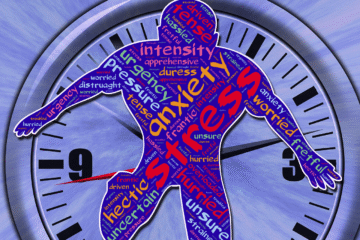The ‘Stress Bucket’ Theory — And How to Empty Yours Daily
Imagine your stress as water in a bucket. Every worry, deadline, or argument adds a drop. If the bucket overflows, you feel overwhelmed, anxious, or burned out. The “stress bucket” theory, popularized by psychologists like Dr. Glenn Patrick, explains how stress accumulates and why managing it daily is crucial. Let’s explore how it works and how to keep your bucket from spilling over.
Your stress bucket fills up from various sources: work pressure, family responsibilities, or even small annoyances like traffic. A 2018 study in Frontiers in Psychology found that chronic low-grade stressors, like constant notifications, increase cortisol levels by 15% over time. If unaddressed, this buildup impairs focus, mood, and even physical health, raising risks for issues like heart disease, per a 2020 American Heart Journal study.
The size of your bucket varies. Some people handle stress better due to genetics, lifestyle, or coping skills. A 2019 Nature Human Behaviour study showed that individuals with strong social support or regular exercise have a “larger” stress bucket, meaning they can tolerate more before feeling overwhelmed. But no matter the size, everyone’s bucket can overflow if stress isn’t managed.
Emptying your bucket daily is key. One effective method is physical activity. A 2021 study in Journal of Affective Disorders found that 20 minutes of moderate exercise, like walking, reduced stress hormones by 25%. Exercise releases endorphins, which act like a natural stress-reliever. Another tool is mindfulness. A 2017 Mindfulness study showed that 10 minutes of daily meditation lowered perceived stress by 20%, helping you process emotions before they pile up.
Social connection also helps. Talking to a friend or loved one can reduce cortisol levels, according to a 2016 Psychosomatic Medicine study, by creating a sense of safety and support. Even small actions, like journaling for 5 minutes, can offload worries. A 2018 Journal of Clinical Psychology study found that expressive writing reduced stress markers by 15%.
The goal isn’t to eliminate stress—that’s impossible. Instead, it’s about regularly emptying your bucket to prevent overflow. Build a routine with exercise, mindfulness, or connection, and you’ll feel lighter and more resilient every day.


